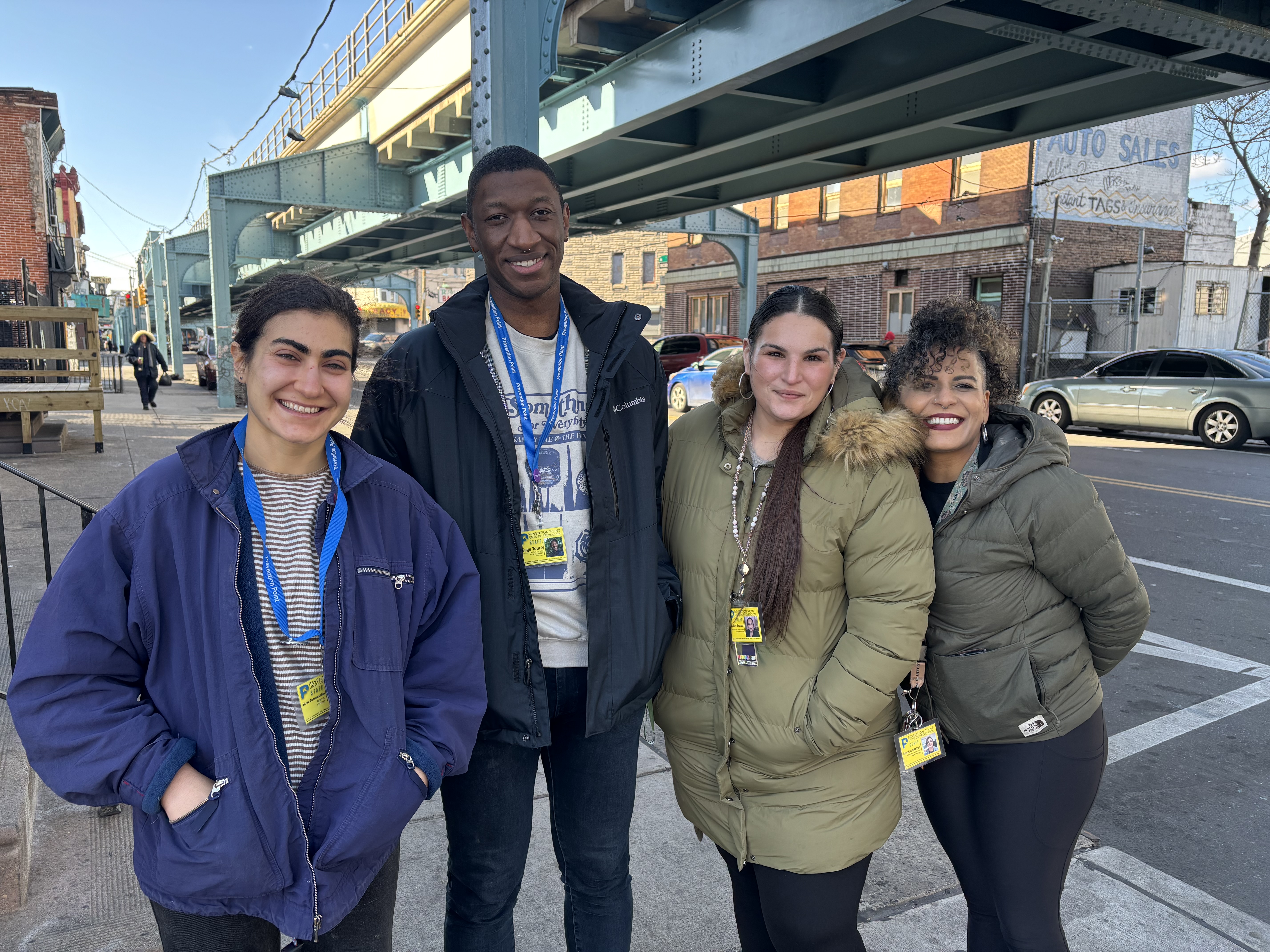
"The most rewarding part of my job is the smiles that we put on people’s faces,” says Sage Touré, case manager on Prevention Point Philadelphia’s (PPP) Integrated Health Care Case Management (IHCM) team. “And, also, the tears—happy tears—because they were able to break through some monumental barrier, like getting housing.”
As a member of IHCM, Sage works to connect high-needs individuals—all of whom have various mental health or physical diagnoses—to the care they need to survive. These diagnoses range from psychosis to severe depression to substance use disorder, and most of the participants face multiple diagnoses.
Alison Sonnenschein, IHCM coordinator, adds, “The reward in this job is doing your best to make sure that historically marginalized folks are getting the treatment they deserve—that any of us deserve.”
“I once said to a friend: we manufacture hope here,” Sage reflects. ‘I really feel that day-in and day-out—that hope is on the horizon for a lot of people.”
Here is a day in Sage’s life as an IHCM Case Manager:
9 a.m.: Sage arrives at work and checks to see if there are any participants they haven't seen in the past two to three weeks. They check hospital notifications and search if the individual has been incarcerated.
10 a.m.: On this particular day, Sage is looking for Teresa, but she is not in the hospital or incarcerated. They ask the PPP staff to keep an eye out for her.
10:30 a.m.: Teresa is found! Sage hands her a granola bar and asks what she needs today. Teresa needs wound care and doesn’t know her status in the housing match process.
11 a.m.: Sage drops Teresa off with the PPP wound care clinic. Meanwhile, Sage contacts the PPP Homeless Outreach team to ask about Teresa’s housing status. Good news—Teresa is matched to Project Home!
12 p.m.: Sage schedules an interview for Teresa with Project Home for later that week, which means she could be housed within the month. Sage connects Teresa to a shelter for the night, and they will follow up about housing in a couple of days.

1 p.m.: Sage is also on the lookout for Michael, who has a history of psychotic episodes. Michael has a psychiatrist appointment today at 2 p.m., and Sage promised to accompany him to the clinic at Temple Episcopal Hospital in the neighborhood.
1:15 p.m.: Michael arrives at PPP and they take a Lyft to the hospital.
1:45 p.m.: In the waiting room, Sage reminds Michael of why he came: “We’re here to discuss medication for schizophrenia and how we can address the challenges you’ve faced.” Michael is often frustrated with his medical care, but today he looks at Sage and says, “You help me so much. Thank you for being here with me.”
2-3 p.m.: Sage accompanies Michael for the appointment, reminding the psychiatrist that Michael’s schizophrenia predates his substance use, and that he experienced psychotic episodes long before he started using drugs. Sage prompts the doctor to clarify medical terms so that Michael better understands his condition and the benefits of medication.
3 p.m.: After the appointment, Sage and Michael head to a pharmacy. While in line, Sage talks about the medications and asks Michael how many doses he would like to store at PPP. Sage schedules a time to reconnect for follow-up questions and appointments, and his need for other services.
4 p.m.: Sage documents the day—which participants they met with and what services they connected them to or provided at PPP.
5 p.m.: Sage wraps up another day of essential, lifesaving work with IHCM, feeling hopeful for their participants’ futures.